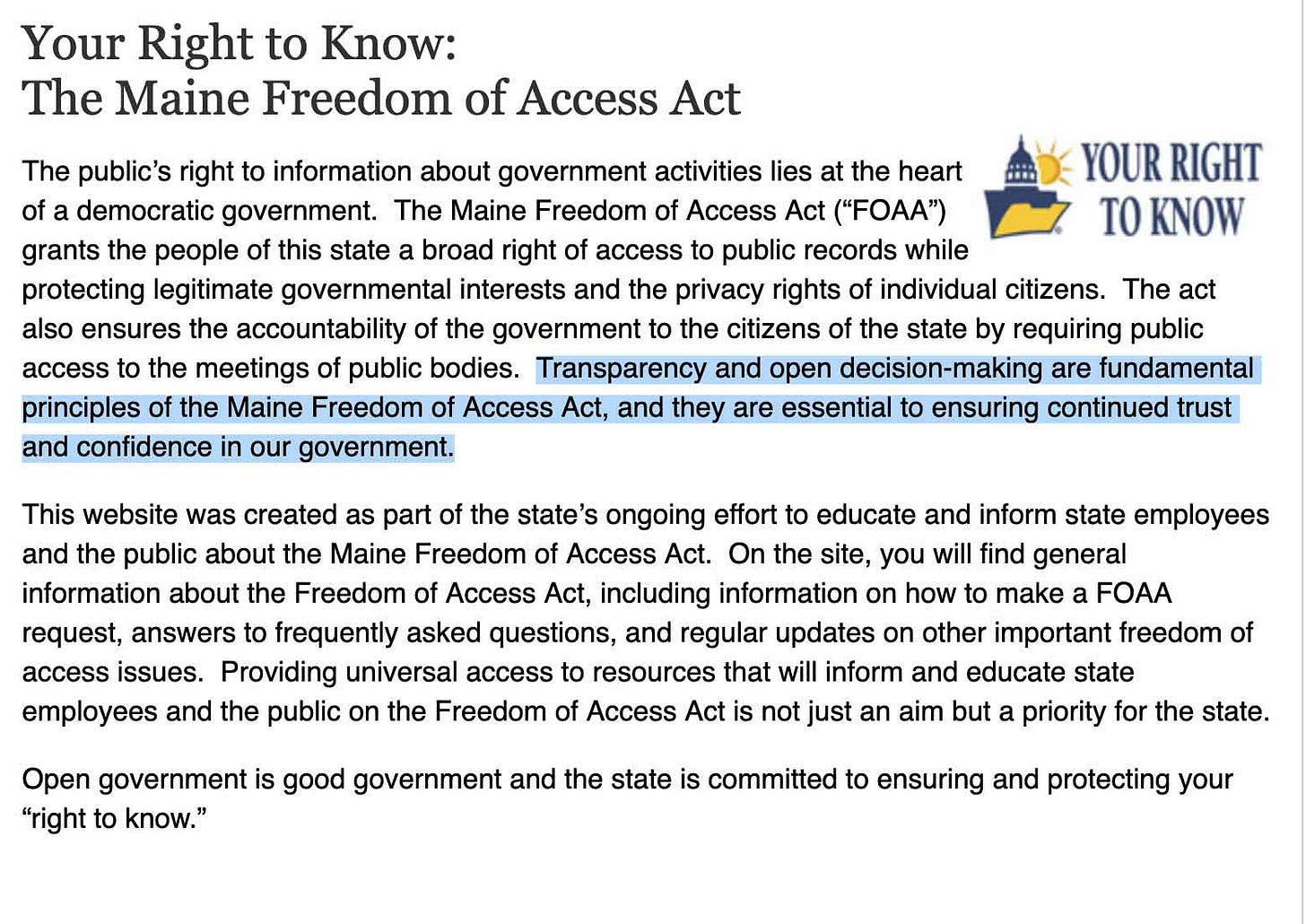FOAA Request
here's how it works.
A few days ago I submitted my first Freedom Of Access Act request. FOAA is the Maine equivalent of FOIA, the federal Freedom of Information Act.
In some weird alter-world I would have been either a lawyer or an investigative journalist, but in this world I’ve been involved with small businesses since I left art school.
Anyway, this is how the request went:
I emailed Harry Lanphear, manager of FOAA requests and Administrative Director of the PUC. The email said:
I respectfully request the following public records under Maine's Freedom of Access Act:
- A copy of the Power Purchase Agreement submitted by Longroad Energy
- A copy of the Transmission Agreement submitted by LS Power
-all records of proposed high voltage electric transmission corridors situated within 10 miles of 470 Branch Mills, Palermo, Maine
He responded within a few hours with “Message Received.” (State Agencies must respond to FOAA requests within 5 business days.)
Today, he emailed and asked to speak on the phone. We spoke a half hour later.
The first two items I requested, the PPA and TA, are not finalized – still being negotiated – and so are designated confidential information.
It seems unfair to me, as a taxpayer and Mainer, that we can’t have access to the negotiations. This appears to be how the PUC is interpreting the FOAA.
However, the FOAA website states:
“Transparency and open decision-making are fundamental principles of the Maine Freedom of Access Act, and they are essential to ensuring continued trust and confidence in our government.”
Negotiating a contract in private is not “open decision-making.” Accepting a bid for a corridor that will destroy thousands of acres of forest, take property rights from hundreds of unwilling private landowners, and reduce the property value of thousands of land owners who are within view shed – hardly smacks of an entity striving to ensure continued trust and confidence.
The third item on my list, the corridors, was what generated the phone call. As Harry explained, in order to respond to a FOAA request, he needs to request all emails and documents that might pertain to the subject. This could be thousands of emails within a given time period. Then, they need to go through the emails and redact them, at a charge of $25 per hour. The taxpayer who seeks the information pays for this.
So, I’m going to email back, constrain my request to a period of time, and agree to pay some amount of money for the work.
Does anyone have any ideas about how this request could be constrained or what it is worth to us? I’m willing to put up some money, but I don’t want to pay for pages full of redactions.
As always, please email me with your photos of beautiful unblemished farms and forests, as well as your thoughts.
protectmainefarmland@proton.me



